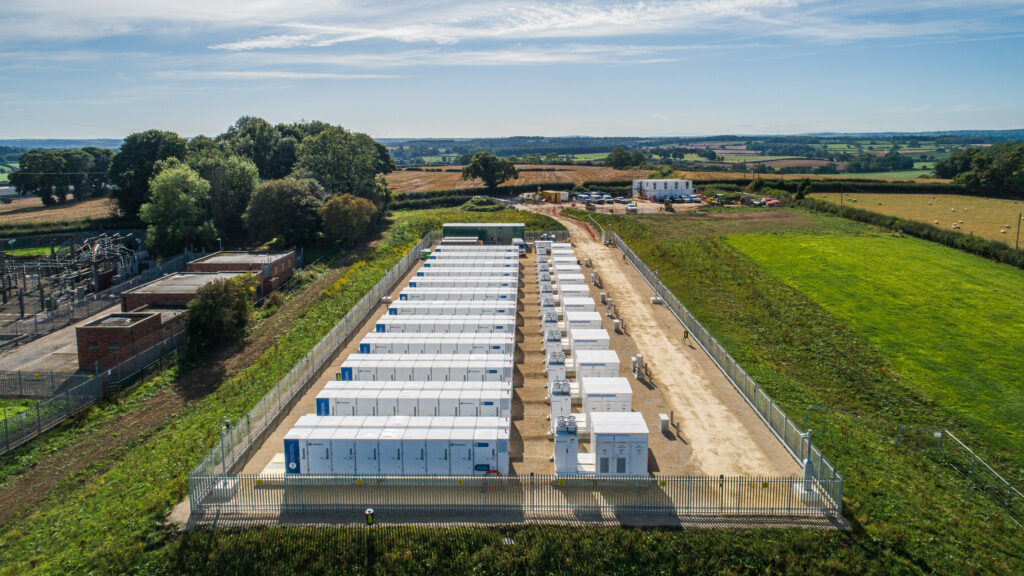
Harmony Energy Income Trust (HEIT) has today (12 September) announced that it has energised two major UK battery energy storage systems (BESS).
The BESS investment firm has successfully energised its Hawthorn Pit and Wormald Green projects, and both are expected to become fully operational in the coming weeks.
The 49.9MW/99.8MWh Hawthorn Pit project is located in County Durham, while the 33MW/66MWh Wormald Green project is situated in Yorkshire. Both of these projects use two-hour duration liquid-cooled energy storage systems supplied by Envision Energy, with this energisation marking Envision Energy’s first operation batteries in Britain.
These projects are HEIT’s seventh and eighth to be energised, and their energisation means that the company’s entire 395.4MW/790.8MWh portfolio is operational.
Norman Crighton, chair of Harmony Energy Income Trust plc, said: “We are pleased to announce the energisation of the Hawthorn Pit and Wormald Green projects, an important milestone for the Company, and one that takes Harmony Energy Income Trust’s total operational capacity to 790.8 MWh / 395.4 MW, equating to 100% of the portfolio. It’s been a pleasure to work with Envision on these projects and we look forward to bp commencing its optimisation services.
“To have completed construction on eight BESS projects since IPO in November 2021 is a remarkable achievement and testament to the skills and dedication of our key suppliers, advisors and project delivery team. Battery storage continues to play a crucial role in the UK’s transition to Net Zero, and our portfolio is a key contributor to this.”
HEIT’s fortunes are beginning to turn
This news is a welcome change of fortune for HEIT, as the firm has had something of a difficult year so far.
In February, the firm revealed that its BESS revenues for the year ending October 31 2023 were “markedly lower” than the previous year, owing to a “weak revenue environment for BESS assets”. In May, HEIT took the drastic step of cancelling its first quarter dividend for shareholders and announcing that it had appointed JLL to sell some or all of its BESS portfolio. A statement from HEIT last month noted that the sale of these assets is progressing, and prospective bidders have shown strong interest. According to the firm, final offers for these asset sales are expected by the end of September.
HEIT’s interim financial statements, released in June, conveyed a sense of optimism, with Crighton declaring that “the worst is behind us and better, more profitable times lie ahead”. The company has restructured debt arrangements with NatWest and Rabobank, which HEIT believes will provide the necessary “stability and freedom” for future success.
The fortunes of the wider UK BESS market appear mixed; while Ernst & Young’s most recent Renewable Energy Country Attractiveness Index (RECAI) ranked the UK BESS market as the third best in the world, research firm Cornwall Insight notes that high energy prices, which significantly lower demand for BESS assets, are likely to continue until late in this decade.
Recent analysis from Modo Energy showed that last month, UK BESS systems earned the second-highest daily total revenue of the year so far, reaching a high of £250/MW on 21 August.

